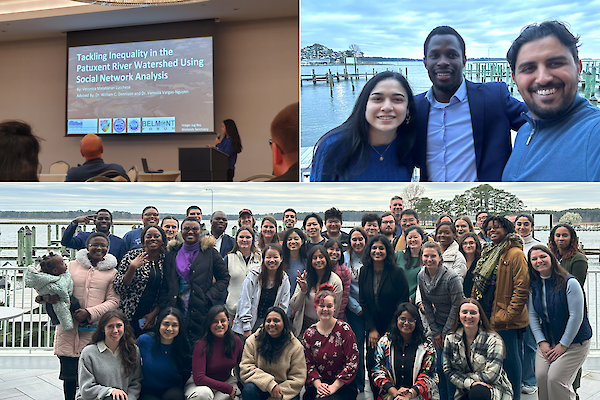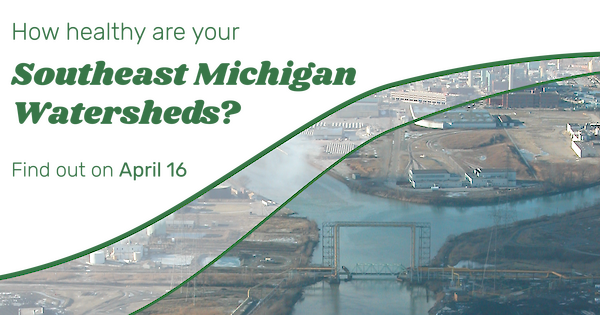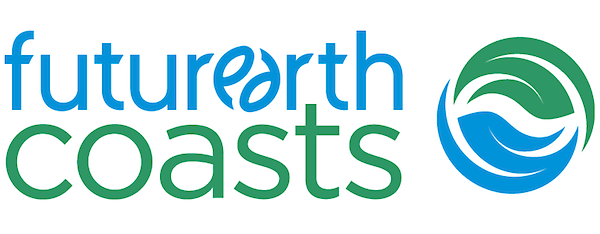Chesapeake Bay Plastic Survey: Part 2

From March 16-25, the Ocean Research Project conducted the second part of their Chesapeake Bay Plastic Survey, following up on their October 2023 survey. In addition to measuring microplastic pollution levels across the Bay's mainstem and major tributaries, this research aims to develop a protocol for efficient, long-term monitoring of plastics across the Bay. There is a critical need to understand microplastic pollution's impact on water quality, and the implementation of a monitoring program can pave the way for the future development of a new indicator for the Chesapeake Bay and Watershed Report Card. Insights from both surveys are invaluable for understanding microplastic abundance, types, and distribution. The second survey also featured a virtual crew, including IAN science communicator Lili Badri, facilitating real-time data analysis and science communication.
MEES Colloquium 2024: Uniting Scholars, Fostering Collaboration

Veronica Malabanan Lucchese, a 2nd year Ph.D. student and NOAA-LMRCSC Fellow II at IAN, presented at the Spring 2024 MEES Colloquium. The Colloquium was held at the Hyatt Place Kent Narrows & Marina in Grasonville, Maryland on Friday, March 22 through Saturday, March 23. This event was hosted by the University of Maryland Eastern Shore, the University of Maryland Center for Environmental Science, and the MEES Graduate Program. There were two panels (main & career), a poster session, and student lightning talks. Veronica presented a lightning talk on "Tackling Inequality in the Patuxent River Watershed Using Social Network Analysis" based on her dissertation research. Students and faculty enjoyed a day of sharing research, networking, team building, and yummy food. The Colloquium offers a unique opportunity for the MEES community to come together and learn about each other's work. The next MEES Colloquium will be held in Fall 2024.
Coming soon: Southeast Michigan Report Cards

Mark your calendars for April 16th as we eagerly anticipate the debut of our Southeast Michigan Report Card series. This initiative encompasses six informative documents, each dedicated to assessing the socio-environmental health of key rivers in the region: the Clinton, Detroit, Huron, River Raisin, and Rouge Rivers, alongside a comprehensive summary of the Southeast Michigan region. The development of these report cards was a result of significant collaborative efforts with local stakeholders, and will provide important insights into river health while fostering community engagement and informed decision-making for the region. Please RSVP here to attend virtually or in person.
New Future Earth Coasts survey on coastal sustainability

The Tour de Coasts survey by Future Earth Coasts has just launched and is looking for you to share your thoughts and help shape the future of coastal sustainability! This survey explores global priorities, challenges, and opportunities in coastal sustainability. Your input is pivotal for the Future Earth Coasts network. To take the survey, please click here.
This month in publications
Please see some of our recent peer-reviewed publications:
-
Contributing to sustainable development pathways in the South Pacific through transdisciplinary research: Conference report (Marine Policy, Annie Carew and Heath Kelsey)- This conference report synthesizes the discussions and lessons learned from a workshop with international and local experts and practitioners held in Nouméa, New Caledonia in October 2022. The workshop focused on addressing several climate change concerns in Fiji and New Caledonia, and the report highlights the need for diverse viewpoints in sustainable adaptation strategies.
-
Interplay of management and environmental drivers shifts size structure of reef fish communities (Global Change Biology, Jonathan Lefcheck)- This study investigates the impact of environmental factors and management strategies on fish biomass in the Mesoamerican Reef (MAR) region, with key findings related to shifts in fish community structure. These changes were linked to varying responses of juvenile and adult fish to both environment and management, highlighting the importance of considering such dynamics in the design of marine protected areas to promote fish biomass across different life stages.
-
Overcome imposter syndrome: Contribute to working groups and build strong networks (Biological Conservation, Jonathan Lefcheck)- This paper provides strategies for early career researchers to contribute effectively to scientific working groups, including generating ideas, offering insights, consolidating literature, analyzing data, and producing visuals. It also emphasizes the importance of fostering an inclusive and supportive environment, setting clear expectations, and communicating effectively to achieve innovative solutions in conservation and sustainability.